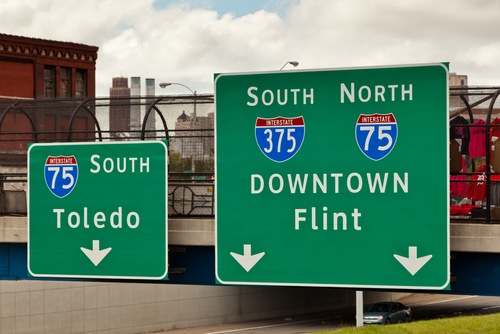
The water crisis in the city of Flint represents one of the most egregious examples of dereliction of duty in the state of Michigan’s long history of dereliction. The 274-page release of emails shows a local government unresponsive to the consistent complaints of residents because of fiscal concerns over water supply and conflicting reports of lead contamination. This would not have happened in Auburn Hills, the middle class, mostly white suburb of Detroit. No, the residents of Flint are dealing with lead poisoning, the extent of which we will not know for many years, because they made three primary “mistakes.”
They are Mostly Black
The racial composition of Flint is 56.6% African American. I have no doubt that if it had been white residents voicing their concerns about the quality of the water, the response from the state government would have been swift and aggressive; but the slow response represents an expression of a kind of institutional empathy gap. This ‘gap’ refers to a cognitive bias wherein a person underestimates the visceral nature of pain experienced by another—it is particularly applicable when the person in pain is black. Therefore, since those in power were responding to mostly black folks, I find it unsurprising that they were less responsive to the complaints filed.
Environmental racism was a concept developed in the 1980s. It refers to the “disproportionate exposure of blacks to polluted air, water and soil.” Poverty and redlining are the primary reason why black and brown people disproportionately live in industrialized areas that expose them to higher amounts of pollutants. Add, now, irresponsive public officials that give rise to an institutional empathy gap to the list of things that contribute to environmental racism.
They are Poor
Reading statistics about Flint and poverty makes me think of stories my mother, aunts, and uncles would tell me of living in rural Oklahoma. They would often tell me that they were poor, but they were unaware of it because everyone else around them was poor as well. For them, it was just a way of life. The same is true of Flint.
The US Census Bureau recently reported that Flint, Michigan is the second most impoverished city for its size—right behind Youngstown, Ohio. Just over 40 percent of the municipality’s residents are living at or below the poverty line. Those in power find it easy to ignore the cries of poor people—especially if those poor people happen to be largely black.
They are Democrats.
The people of Flint, Michigan, throughout history, have consistently voted democratically. No, that’s putting it too lightly. Let me put it this way: I have no doubt that Bernie Sanders would give Hilary Clinton a serious fight for the votes of the city. In 2006, the Bay Area Center for Voting Research ranked Flint as the 10th most liberal city in the United States. It was ranked as more liberal than Baltimore, Maryland, and Cleveland, Ohio. I think this is important in understanding the response of the Republican Governor Rick Snyder and his Republican Lieutenant Governor, Secretary of State, and Attorney General.
Put bluntly, since the voters in Flint, Michigan, are a lost cause and of no use to the Republican led state government, those in power have little incentive to respond to the complaints. Compound this political disincentive with what has been explicated above (racism and classism), and you have a recipe for disaster. As the citizens of the city lost hair and developed rashes, as poor brown children drank water that was tainted with E. Coli and smelled of metal and gas, those with the power to help did nothing.
Representative Dan Kildee was elected to represent the citizens of Flint. He called race “the single greatest determinant of what happened in Flint.” That may be true, but it doesn’t help to be poor and democratic in Michigan, either. In fact, as this water crisis shows, it can get you killed.